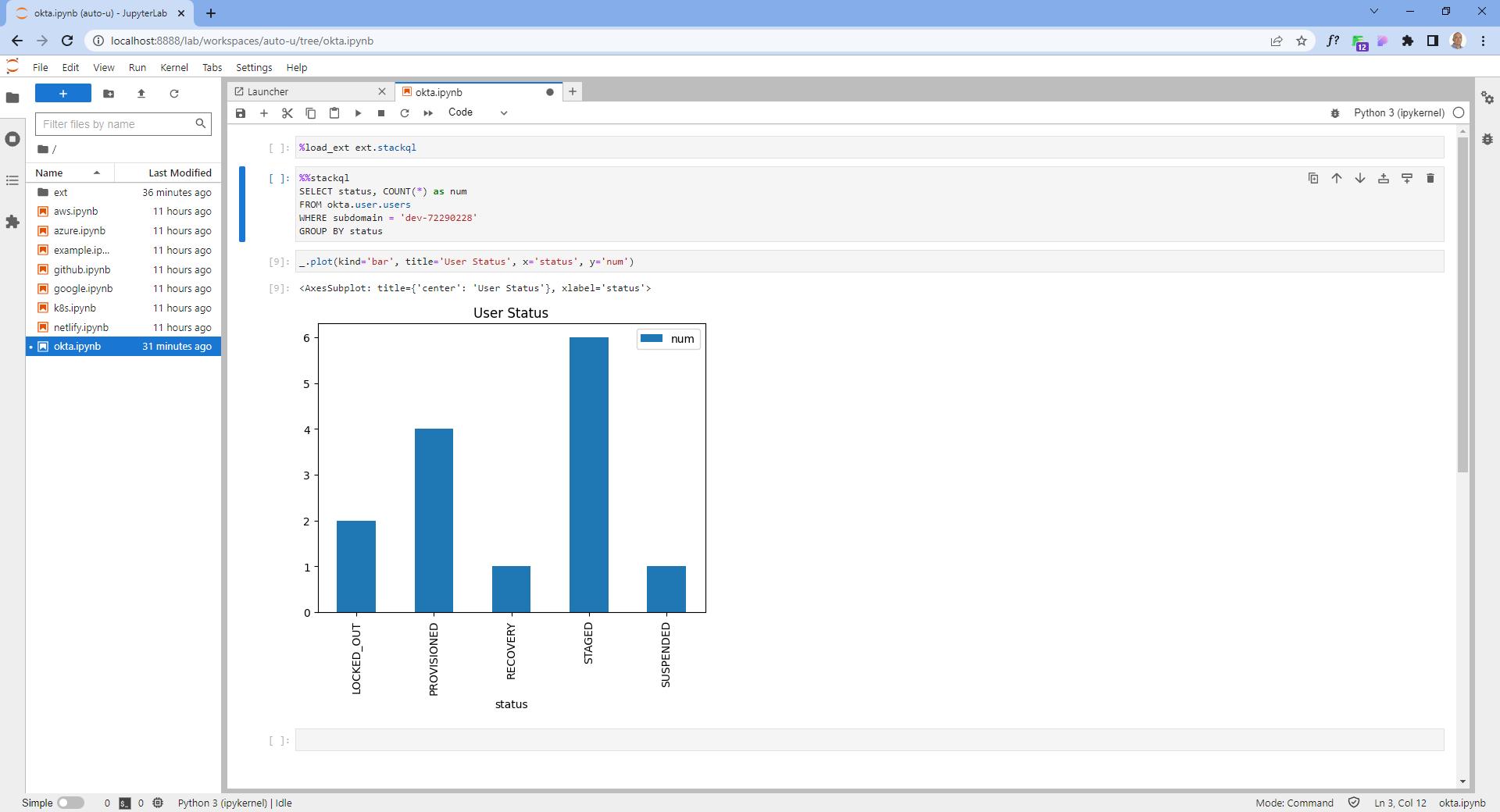What is StackQL?
stackql is a dev tool that allows you to query and manage cloud and SaaS resources using SQL, which developers and analysts can use for CSPM, assurance, user access management reporting, IaC, XOps and more.
pystackql is now available in PyPI, and documentation for the package is available at Read the Docs. pystackql can be used with pandas, matplotlib, plotly, jupyter and more to run queries and visualize results.
The latest version of stackql for any platform can be installed using:
pip install pystackql
here is a complete example...
the code used in this example is available here
from pystackql import StackQL
import pandas as pd
provider_auth = {
"aws": {
"credentialsenvvar": "AWS_SECRET_ACCESS_KEY",
"keyIDenvvar": "AWS_ACCESS_KEY_ID",
"type": "aws_signing_v4"
}
}
regions = ["ap-southeast-2", "us-east-1"]
stackql = StackQL(auth=provider_auth)
query = """
SELECT '%s' as region, instanceType, COUNT(*) as num_instances
FROM aws.ec2.instances
WHERE region = '%s'
GROUP BY instanceType
UNION
SELECT '%s' as region, instanceType, COUNT(*) as num_instances
FROM aws.ec2.instances
WHERE region = '%s'
GROUP BY instanceType
""" % (regions[0], regions[0], regions[1], regions[1])
res = stackql.execute(query)
df = pd.read_json(res)
print(df)
which returns a pandas DataFrame like the following:
instanceType num_instances region
0 t2.medium 2 ap-southeast-2
1 t2.micro 7 ap-southeast-2
2 t2.small 4 ap-southeast-2
3 t2.micro 6 us-east-1
Source code for
pystackqlcan be found atstackql/pystackql
Let us know what you think!

